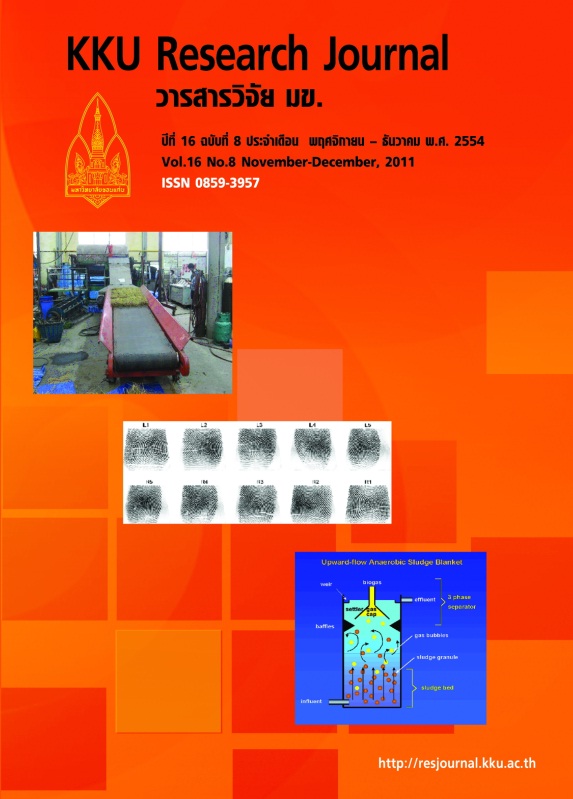Contamination of coliform bacteria in rural households drinking water
Main Article Content
Abstract
The drinking water of most villages within the Sumsong district, Khon Kaen province is derived from “Bo-Tip” natural groundwater. This descriptive study determined the quality of the Bo-Tip groundwater and investigated drinking water of rural households about the contamination with Ciliform bacteria. It was found that all water samples collected directly from Bo-Tip groundwater were safe for drinking, but the drinking water used in rural households were contaminated with Coliform bacteria 91.49%. Contamination was due to unsealed containers or bottles, and the fact that drinking cups were used without rinsing and those were using the same cup without washing their hands. Contamination of the cups might be due to dirty hands since it was found that 44.68% of hands were contaminated with Coliform bacteria. Contamination of drinking water was significantly associated with poor personal hygiene indicated by dirty lavatories and lack of washing hands regularly. (P-value= 0.01, OR= 11.24, 95%CI= 1.31 to 51.59). The result was found non-significantly associated with washing hands only water was 2.38 times more contamination of Coliform bacteria in drinking water than washing hands with soap. (P-value= 0.29, OR= 2.38, 95%CI= 0.39 to 25.14) and washing only with water after using the toilet was 1.02 times more contamination of Coliform bacteria in hands than washing hands with soap (P-value=0.95, OR= 1.02, 95%CI= 0.41 to 2.52). However washing hands with soap tended to last longer than washing hands only with water and it should be kept in mind that antibacterial soap can reduce bacteria more that using any other method.


